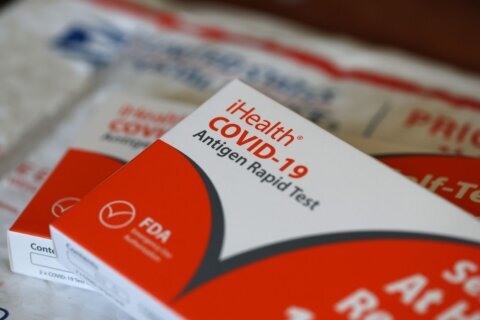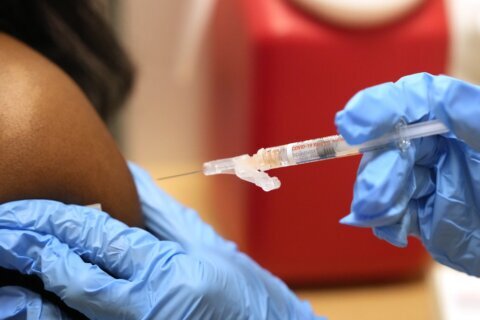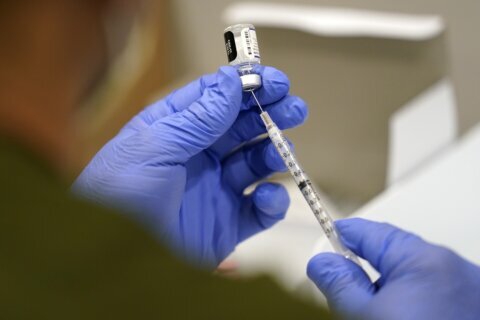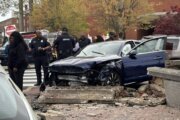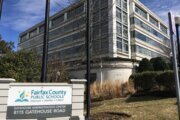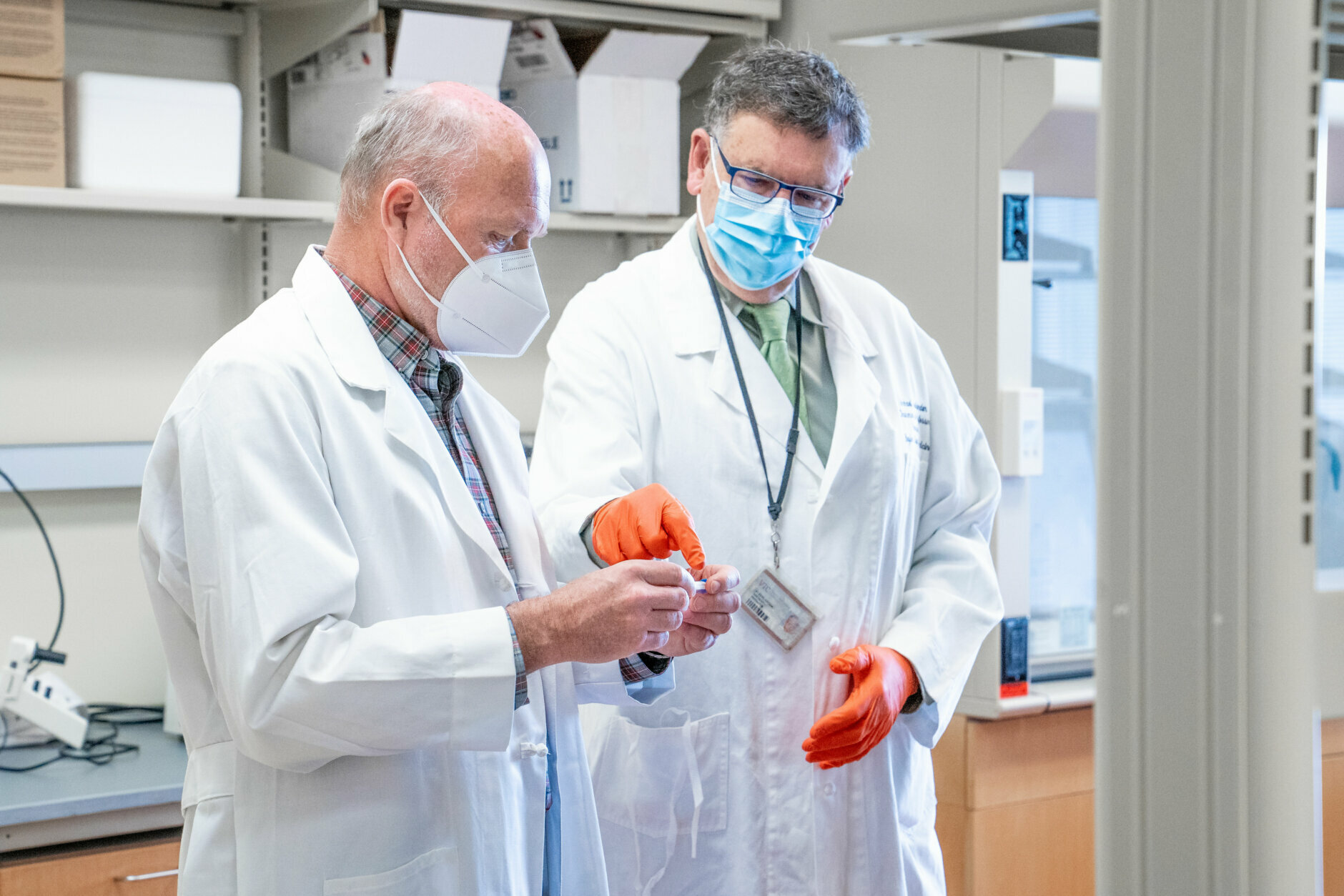
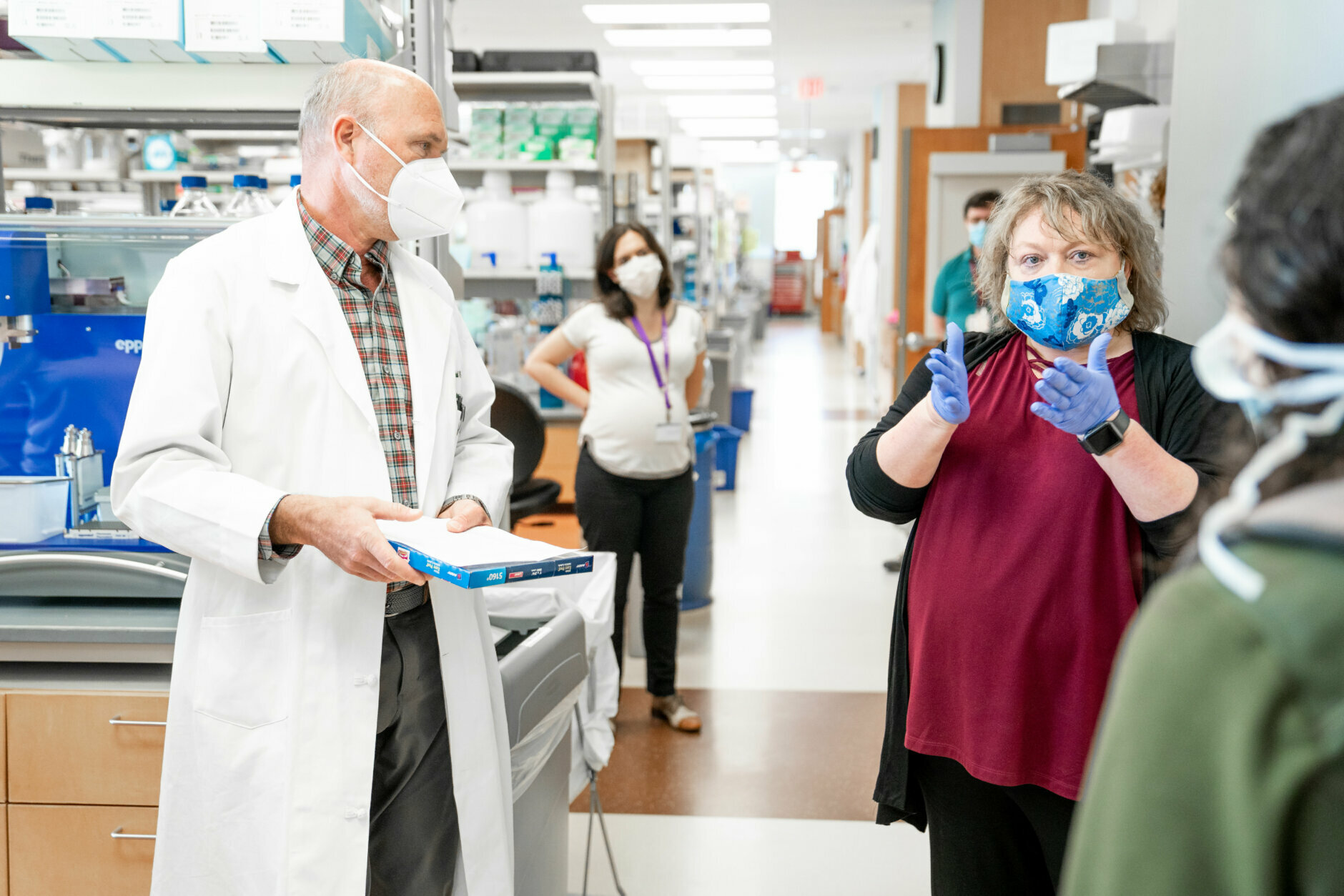
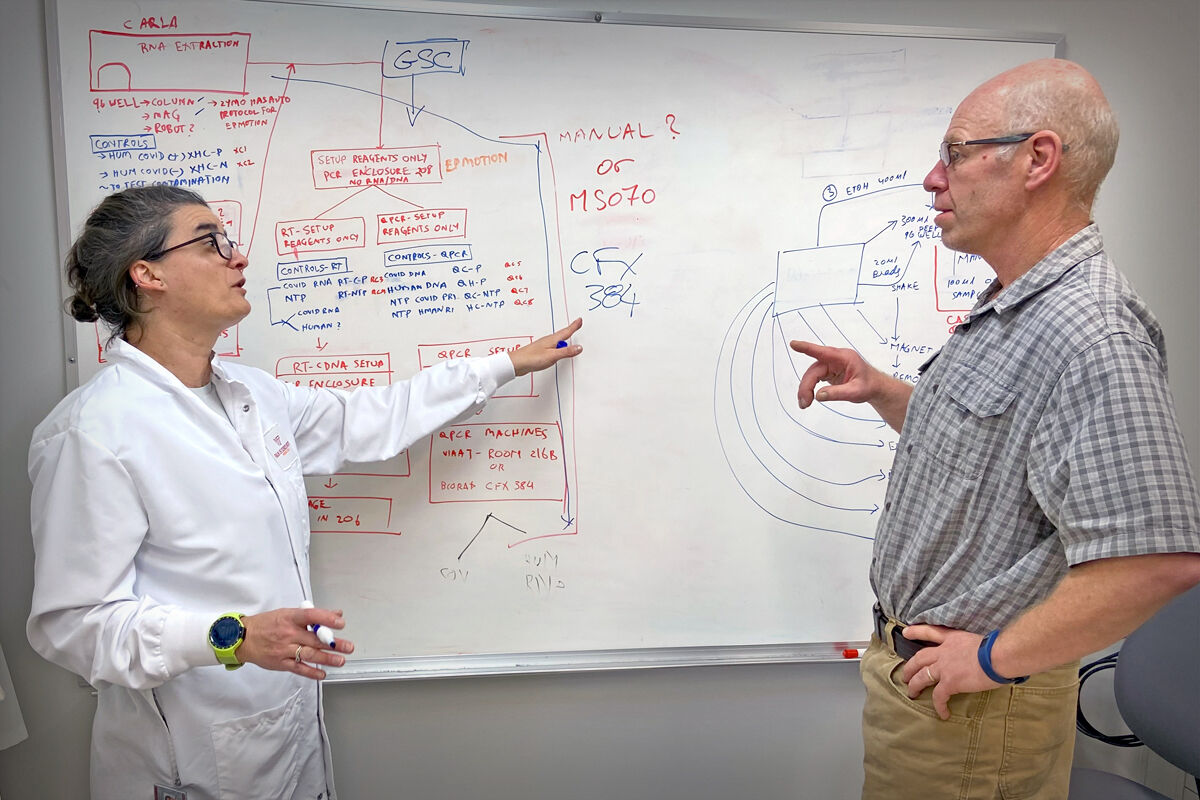
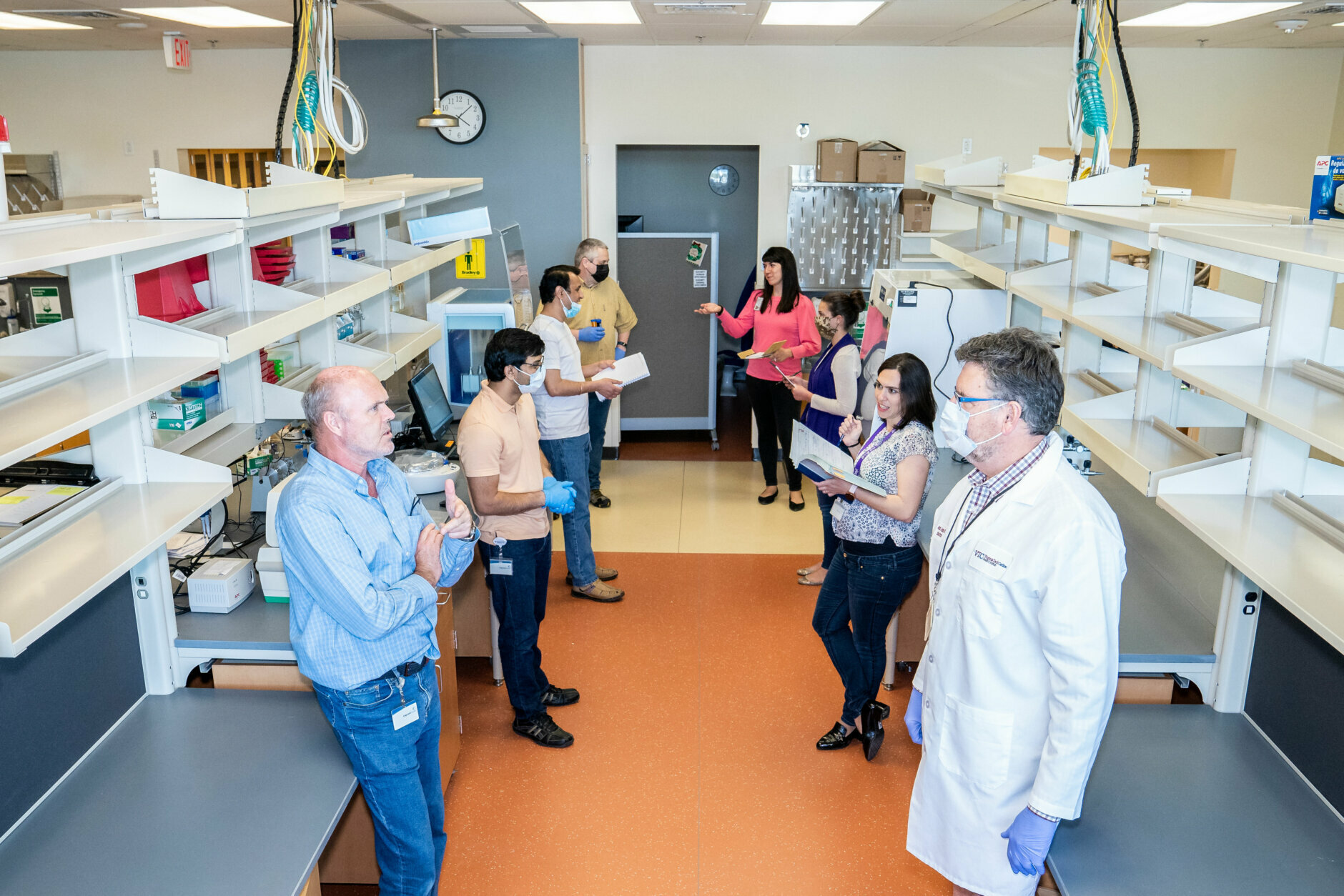
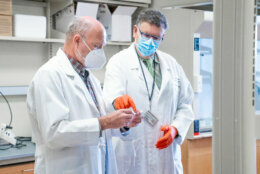
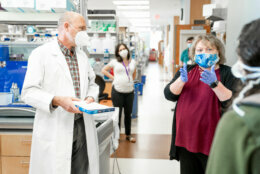
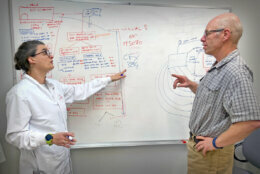
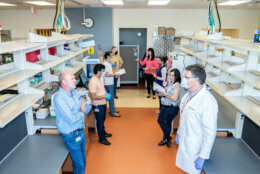
It’s a partnership that’s speeding up COVID-19 testing results in Virginia: At Virginia Tech, researchers have developed a new COVID-19 test and the facilities to process those tests quickly.
“We have a test that’s been working very well and think it’s going to be extremely accurate and also can be able to turn around in pretty good turn around times — in many cases by the end of the same day,” said Michael Friedlander, Virginia Tech’s vice president of health sciences and technology. “So, we’re not going to be facing for our local region those long turnaround times that you’ve heard about at the state level and the national level.”
The testing doesn’t take long — only six hours, similar to many other laboratories. But the key to their speed of reporting the results is working directly with local health departments and controlling the logistics.
Dr. Harald Sontheimer helped develop the new COVID-19 test. He’s the director of the Center for Glial Biology in Health, Disease and Cancer at the Fralin Biomedical Research Institute in Roanoke, and executive director of Virginia Tech’s School of Neuroscience in the College of Science.
According to Sontheimer, while most laboratories could have tests that take around six hours to complete, the slow down comes in getting the supplies to the health departments, and getting the health departments to ship those supplies back to the lab for testing.
At Virginia Tech, they’ve removed a lot of the variables that could slow things down.
“We’re providing everything but the swab to the health system. We’re basically providing a little tube that has transport medium for the virus already in there,” Sontheimer said. “The physician in the field or the nurse puts swab in there; that comes back to us. We’re cutting out transportation, the FedEx, the samples being stored somewhere, sometimes under less than optimal conditions.”
With the samples being delivered directly from the testing site to the university lab, they’re often able to get the results of swabs collected in the morning completed, and results reported back to the health system, the same day.
Virginia Tech’s system could also make the testing more reliable.
“If that sample makes it to us quickly, it doesn’t degrade. With the current backlog in the system, with other test providers, there is a fear that if the sample’s not stored properly, the viral genes could degrade and will not be properly detected anymore,” Sontheimer said.
Dr. Noelle Bissell, director of the New River Health District of the Virginia Department of Health, believes this cooperation will be critical in the battle against COVID-19. This is especially the case when it comes to testing health care workers and first responders, who are critical to a community.
“Having timely results, same-day results, really does inform our decision-making and our guidance about staff issues, about quarantine and isolation,” Bissell said. “We don’t want those people to put others at risk, including their colleagues or patients. Having this capability increases our ability to respond effectively in this pandemic right now.”
She added that this will also be vital in being able to test, trace and isolate cases in long-term care facilities, jails, mental health institutions and among homeless or shelter populations, where appropriate social distancing is challenging.
As Virginia Tech begins the testing program, researchers are running a couple hundred samples a day, but they are already working to increase the capacity and hope to be able to run at least 1,000 tests a day in the next two months.
Though this program is operational in just a few communities in Virginia — those closest to the university’s facilities — Friedlander believes their model could be used in other communities across the nation to build their own partnerships.
“If you can replicate this model — and it’s got obviously political, financial, logistical aspects to it — throughout the country, we could increase tremendously our overall ability to test,” Friedlander said. “There are untapped resources and talent available to do this.”


